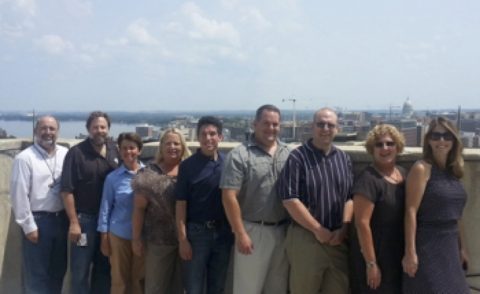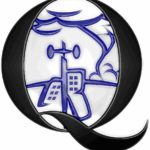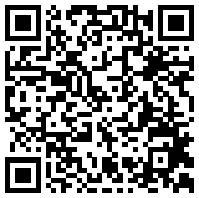by Margaret Mooney, CIMSS
NOAA’s Cooperative Institute for Meteorological Satellite Studies (CIMSS) in Madison Wisconsin is pleased to announce a virtual science fair for students from grades 6-14 applying GOES-16 or GOES-17 data to investigate weather scenarios and natural hazards.
‘Pleased’ is probably too mild of a word to describe our enthusiasm around this project. Madison is after all, the birthplace of satellite meteorology and CIMSS founder Verner Suomi is widely known as the “Father of Satellite Meteorology.” Recent launches of the GOES-R, NOAA-20 and GOES-S satellites have made our building a very exciting to place to work! Our goal, and motivation, is to share our passion for GOES-R series data as broadly as possible.
One way to reach students is through the spring 2019 virtual science fair, part of “The GOES-R Education Proving Ground” at CIMSS. A key element of this effort, from the get-go, has been a core group of educators working with CIMSS in close coordination NOAA scientists.

Above: The original GOES-R Education Proving Ground Team from 2014 – from left to right: John Moore, Tim Schmit (NOAA), Margaret Mooney (CIMSS), Vicky Gorman, Peter Dorofy, Craig Phillips, Brian Whittun, Amy Monahan, and Charlotte Besse.
Most of the original teachers have rotated out of the core group. And sadly, Charlotte Besse, a Florida teacher, has since died of cancer – but not before attending the 2016 GOES-R launch with her family in tow!
A major perk for winners of the GOES-16/17 Virtual Science Fair will be official GOES-T launch invites. Students will also receive $25 gift cards. Teachers coaching the winning teams will garner launch invites (no travel support) and conference travel support to attend and present at the 2020 American Meteorological Society (AMS) Centennial meeting in Boston.
There will be three winning teams: middle school, high school and grades 13/14 (community college or university). GOES-R Educators from five different states will judge the science fair entries. We will be accepting entries between March 1st through May 3rd, 2019. Guidelines, scoring rubrics and other supporting resources are all on-line at http://cimss.ssec.wisc.edu/education/goesr/vsf.
Please share with your favorite educator!
contests
Annual Meeting Session to Feature Solar Energy Contest Winners
The AMS Solar Energy Prediction Contest brought together participants from around the world to tackle the problem of improving solar energy forecasting. The contest was held on Kaggle , a website for hosting worldwide data mining and machine learning contests. Participants used a set of NOAA Global Ensemble Forecast System reforecasts as input for statistical and machine learning models that predicted the total daily solar energy at 98 Oklahoma Mesonet sites. Over the four-month span of the contest, 157 teams from six continents submitted over 2,500 sets of predictions. The winners were:
First Place:
Lucas Eustaquio Gomes da Silva (Belo Horizonte, Brazil) and
Gilberto Titericz Jr. (São José dos Campos, Brazil)
Second Place:
Benjamin Lazorthes (Toulouse, France)
Third Place:
Owen Zhang (New York, New York)
Top Student Winner:
Gilles Louppe (Liège, Belgium)
The first-place, second-place, and student winners will present their methods at a special session (Wednesday, February 5, 1:30-2:30 p.m., Room C204) of the AMS Annual Meeting. Specialists in renewable energy and data science as well as all interested attendees are invited to learn about the methods used in the contest and to discuss what value the contest results may provide for forecasts of renewable energy and other phenomena.
The contest is jointly sponsored by the 12th Conference on Artificial and Computational Intelligence and its Applications to the Environmental Sciences; the 22nd Conference on Probability and Statistics in the Atmospheric Sciences; and the Fifth Conference on Weather, Climate, and the New Energy Economy.
You can find more information about the contest here. The winners’ model approaches and codes are available here.
Give Solar Energy a Boost–and Win a Prize
Weather Quest Sleuths: Start Your Smartphones!
 Students participating in the 2011 Weather Quest: Use your smart phone to
Students participating in the 2011 Weather Quest: Use your smart phone to  read the qr code on the right to get Clue #5:
read the qr code on the right to get Clue #5:
If you have a smart phone, but not a qr code reader, you can download one from http://www.mobile-barcodes.com/qr-code-software/ .
If you don’t have a smart phone, you can go to this URL to access the clue: http://library.ssec.wisc.edu/tempfiles/clue5.htm
Good luck!
The Weather Quest Team